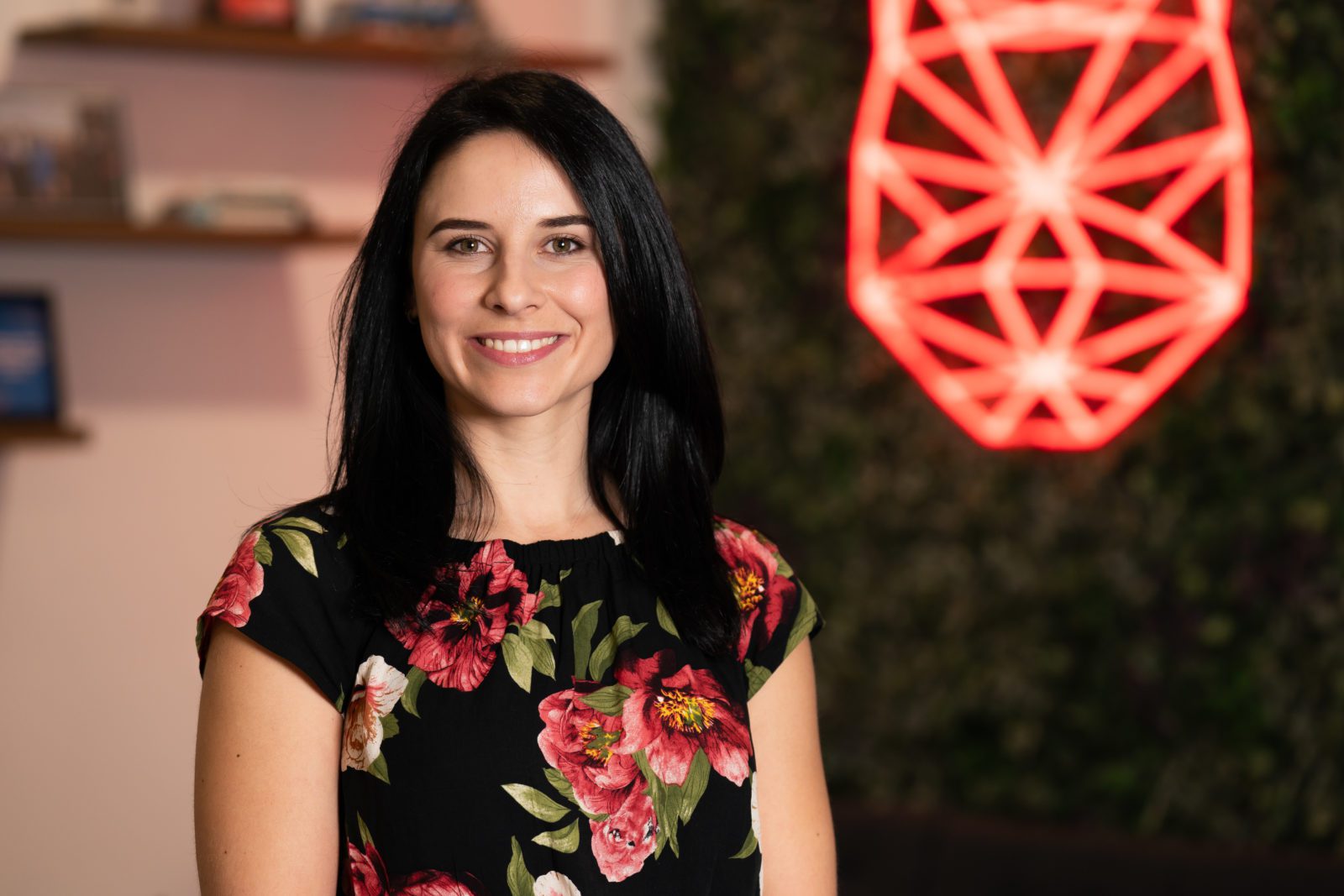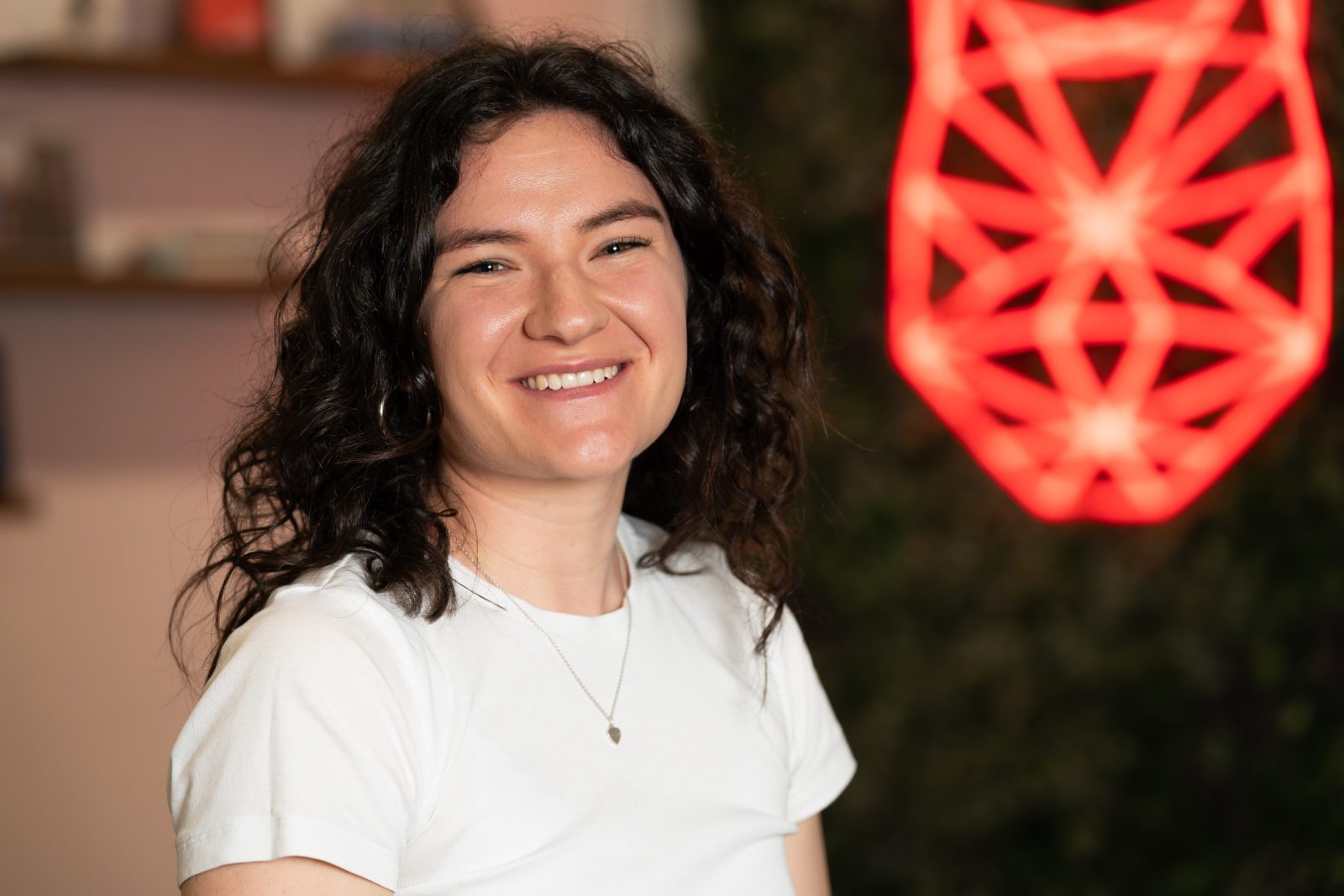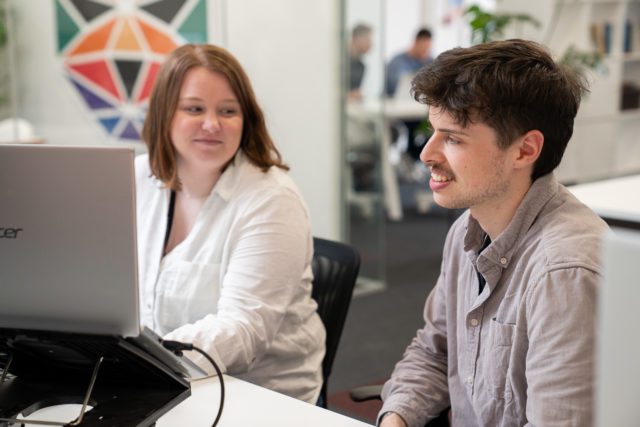One of the most common questions from budding SEO professionals or businesses is wondering if they need to learn how to code to do SEO. This can often be a double-edged sword, with different answers depending on what you’re hoping to achieve. So can you do SEO without coding?
Coding is not an essential skill that SEOs need to use to complete their daily tasks. While an understanding of programming languages will help, there are many workarounds. However, understanding code will allow you to produce higher quality work and conduct more in depth technical SEO tasks.
Read on to find out if you need coding for SEO, if you need a developer for SEO, what languages are used in SEO, and what schema code is.

Do you need coding for SEO? This is a common question amongst business owners and budding SEOs. Realistically, there are two answers to this question. On the one hand, it’s completely possible to have a successful SEO career without ever touching or learning code. Many of the more technical tasks that you need to complete as an SEO can be done just as well through the use of plugins and AI. Anything else can (and really should) be completed by a developer to ensure that nothing goes wrong.
On the other hand, having a sense of how programming works at the least can help you immensely with your SEO work. Having a basic understanding of development, websites, and coding languages will assist you in many ways. You’ll be able to pick up and understand many of your SEO tasks a lot faster, such as conversion tracking in Google Tag Manager, and you’ll also find it easier to use and manage a website’s CMS. This knowledge will also enable you to conduct more advanced SEO strategies that you wouldn’t otherwise have access to.
When starting out in your SEO career, you don’t need to know anything about code. However as you grow in your career and want to advance your skills, it’s beneficial to have at least a basic knowledge.
While many of your SEO tasks can be done through code generators, AI, and plugins, it can get difficult when something doesn’t work as intended. In these cases, it’s useful to have a basic understanding of what the code means so that you can troubleshoot the issue, even if you wouldn’t be able to write the code in the first place.
There are also often issues that arise on websites. Being able to understand what’s causing the issue and communicate this clearly with a developer in words that they use and understand will make both of your lives a lot easier.
Many aspects of web development affect how well your SEO can perform. Because of this, it’s important that there’s somebody working on the campaign that’s able to complete development tasks.
The majority of the time, this will be your client’s developer, a sub-contracted developer, or an agency’s in-house developer. You’ll be able to send any development issues to them to complete and this will assist your SEO efforts.
However, if your client doesn’t have access to a developer (as can often happen with small budget clients), you’ll be unable to make many technical improvements unless you know web development yourself. Taking on clients like these without any coding skills on the campaign will often end in unhappy customers, so you’re a bit more limited in who you can take on as a client.
There are many languages that could be useful for SEO purposes. Most will only be useful if you work on a site that’s built using it, but some will come in handy for your tasks, no matter what site you’re working on. We’ve explained the most important languages for SEOs to understand to advance their SEO knowledge.
HTML is not actually a programming language. This is called a markup language and is used to render and display page elements on a web browser. Most websites now have an easy to use CMS where you can complete most of your SEO tasks without needing this. However, if you need to debug issues or communicate with a developer, you’ll have a much easier time if you have a basic understanding of HTML. You don’t need to have the deep understanding of HTML that a developer would have, but some of the most important aspects of SEO, such as meta tags, H tags, and structured data fall under HTML. Having a basic understanding of how it all works together is a huge benefit. This will also allow you to discuss issues with developers and understand what they report back.
On top of this, you’ll be able to recognise some SEO technical issues such as robots directives blocking indexing. While you can always ask your coworkers or a developer to take a look, it’s much easier and more efficient to check yourself, and provides a better service to your clients.
For an SEO, PHP can come in handy for many technical tasks and diagnostics for websites that are built in a PHP-based CMS. Since an example of this is WordPress, alongside many others, this accounts for a massive proportion of websites across the internet, with 76.5% of all websites built using some form of PHP.
Benefits of learning PHP include the ability to make changes to templates or functions. This enables you to complete SEO related tasks such as changing the way that titles or headers are output, which would otherwise need to go to a developer. You could also use PHP to write custom codes to automate tasks such as schema so that it’s automatically output based on the page template used.
One of the biggest benefits for SEOs is the ability to review existing code and ensure that it correctly outputs features for both bots and users. This ensures that everything is being indexed correctly and working well behind the scenes.
While PHP also isn’t necessary to start your SEO journey, you may want to consider learning the basics so that you can understand what you’re looking at, explain issues to developers, and fix basic issues yourself.

Python is a programming language that’s often used to develop web applications. While understanding Python to work on sites is useful, the true SEO benefit of Python actually comes in the form of automating your daily tasks.
Python is easy to learn and allows you to express development concepts in fewer lines of code, meaning that you can quickly and efficiently create programmes for tasks that you need to complete. Here are a few examples of SEO tasks that can be automated by using Python:
JavaScript allows developers to create interactive elements on sites such as dropdown menus and image rollovers. While understanding JavaScript isn’t necessary at all, there are many reasons why it could be useful and allow you to dive deeper into technical SEO.
This can often be a love-hate relationship for many SEO professionals. On one hand, JavaScript can assist with SEO by providing a better user experience, dynamic content that keeps users engaged, and improving performance by reducing the amount of data transferred and loading content asynchronously.
On the other hand, JavaScript comes with many pitfalls when it comes to SEO. Search engines are often not able to properly crawl and index sites that rely too heavily on JavaScript, resulting in indexing and ranking issues. JavaScript can also slow down your site and cause pages to load slowly, make it difficult for search engines to understand the content and structure, and cause issues with the way that pages are displayed if not implemented properly.
While passing these tasks onto a developer is absolutely fine and often expected, it’s important to be able to understand these issues and optimisations. This will allow you to understand how JavaScript has been used on a website, come up with optimisations to improve it, and recognise potential problems with any changes being made.
CSS can help to reduce the amount of code on your site by placing all of the instructions for styling in one place, instead of having lines of code for every style piece on every page. Optimising for this will improve the speed of a site, which in turn will improve your SEO and page speeds. As an SEO, this won’t normally be something that you need to worry about, and you certainly won’t need to code this yourself.
With that being said, understanding the basics of CSS, and how it affects a site, will be a huge benefit as you advance further in your SEO career. This will allow you to diagnose issues with site speeds, problems with how pages are shown, and even fix small issues yourself so that you don’t waste time discussing it with a developer.
Schema markup, also known as structured data, is a code that search engines can use to read and understand what’s on your web page and what it’s about. While search engines are often able to do this by crawling the page itself, it’s still worth assisting them in this process. For example, you could have a testimonial or review on the web page, and search engines should be able to attribute this as a review. If you or I look at the page, we’ll be able to see that it’s a review, however search engines might think that what the reviewer wrote is a description of the product or service. By adding this to your schema code and telling search engines that this is a review in a language that they understand, it ensures that everything is understood.
Adding schema to your pages can also add rich results when you show up in search results. Rich results are the extra pieces of information that show up around your website’s link. If you’ve ever seen a website’s rating under their meta description, this is a rich result. These can also include things like FAQs, reviews, videos, products, job postings, courses, and many others.
Schema is written in the JSON format, however you don’t necessarily need to learn this to be able to create schema. For basic schema, using ChatGPT or schema generators works perfectly fine most of the time. The only time you will need to understand JSON is for troubleshooting issues if it doesn’t work for some reason. With more complex, technical schema, you’ll almost certainly need to understand how to write the code.
With schema, the more you understand the code, the more you’ll get out of it. Learning even the basics will open up new doors for better and more advanced schema, and allow you to rank higher and add more rich results to your pages.

At Wildcat Digital, we understand that not every client has a developer available at every step of their journey. That’s why we have a number of technical SEO specialists on hand with a range of development backgrounds to provide technical support for all of your SEO needs.
Whether you have a developer or you don’t, we can help you rank higher on search engines, attract more clients, and grow your business. Our award-winning digital marketing team is on hand for any questions you may have, from SEO to website building and PPC. Get in touch with a member of our friendly team today to discuss your digital marketing needs.

Founder
Our founder, Will Hitchmough, worked at a number of high profile Sheffield Digital Agencies before founding Wildcat Digital in 2018. He brings an extensive knowledge of all things related to SEO, PPC and Paid Social, as well as an expert knowledge of digital strategy.
Digital Marketing can be a minefield for many businesses, with many agencies ready to take your money without knowing how to deliver results. I founded Wildcat Digital to deliver digital success to businesses with smaller budgets in a transparent way.

Content Strategist Team Lead
With a degree in Marketing and a background in more traditional, offline marketing, Chloe joined Wildcat in 2021 after deciding to move into the digital marketing industry. She joined us as a Content Specialist and quickly moved up the ranks, becoming a Content Strategist and later an SEO Team Leader.
Outside of work, Chloe is an avid creative. If she’s not knitting, you’ll likely find her behind a sewing machine or in the kitchen trying (and often failing!) to make sourdough.

SEO Account Director
Paul has a strong background in SEO, having previously founded and ran a successful eCommerce business, as well as running a personal blog that achieves an average of 17K users per month. Paul’s knowledge of SEO is extensive, with a strong emphasis on client handling and technical SEO.
Outside of work, Paul enjoys spending time with his family and staying active with weight lifting and combat sports.

Head of Operations
Nadea joined Wildcat in 2021 and has since overhauled the way we work. She has a background in various administrative, operations and HR roles, which gave her the experience and skills needed to lead and organise a growing business.
Outside of work, Nadea loves anything that keeps her active, but she especially enjoys hiking, camping and mountain biking.

SEO Account Manager
With a background in sales, Molly is a natural Account Manager, brilliantly handling any issues that come her way. Having joined us as a Digital Marketing Executive, and working part-time through her final year of University, Molly is a shining example of how hard work pays off. She is now an SEO Account Manager with a particular interest in Content and Client Management.
In her spare time, Molly loves to get out in nature, hiking and exploring the Peak District. She also loves cooking and likes to unwind with a bit of yoga.

Senior PPC Account Manager
Libby joined Wildcat in 2021 as our first PPC hire. With a degree in Digital Media Production, a Master’s in Digital Media Management and previous experience in Social Media Management, Libby hit the ground running and has since climbed the ranks to Senior PPC Account Manager and has a particular interest in the eCommerce sector.
Outside of work, Libby likes gaming, and cooking and likes to keep active by lifting weights.

SEO Team Leader
Jasmine joined Wildcat in 2022 with a strong background in SEO and Account Management. At the time, she was finishing up a Level 4 Apprenticeship in Digital Marketing from the Chartered Institute of Marketing, and has since worked her way up to SEO Team Leader. Jasmine excels at content writing and promotion, and particularly enjoys finding creative ways to join the dots on multi-channel campaigns.
In her spare time, Jasmine volunteers at a charity, helping combat loneliness & social isolation experienced by older neighbours. Outside of Wildcat, she owns a catering company, Savery Grazing, creating delicious grazing tables & platters for a range of events. She also loves skiing and exploring the Peak District.

Senior PPC Executive
Prior to joining Wildcat, Braden founded and ran his own Social Media Management agency where he gained valuable skills in growing brands’ online presence, which has since proven invaluable in his role at Wildcat.
Outside of work, Braden is a big football fan, regularly travelling to Pride Park to support Derby County. He also enjoys watching and playing snooker, hiking in the Peak District, and attending air and car shows.

Senior SEO Executive
After spending ten years managing businesses, restaurants, cafes and event spaces across Sheffield, Jon decided to change careers and joined Wildcat as an SEO Executive in 2022. He especially enjoys the client management side of the job, helping them to understand digital marketing and ways in which they can build their business’s presence online.
Outside of work, Jon likes to keep fit with running, badminton and football, and also loves music.

SEO Executive
Rachel joined us as a graduate, having recently graduated from Sheffield University with a degree in English Literature. Since joining, Rachel has proven herself to be a Content Queen, and particularly enjoys getting stuck into projects that allow her to explore her creative side.
Outside of work, Rachel enjoys a wide range of hobbies, including rugby, singing, reading, and spending time with her family and three labradors.

PPC Team Leader
Carl joined Wildcat in 2023 with a wealth of experience in PPC. He has experience working with a wide range of clients, industries and budgets, from small local businesses all the way to international e-commerce businesses. Carl has a particular interest in strategic planning and forecasting. He is passionate about data analysis and creating sustainable long-term cross-channel strategies.
In his spare time, Carl enjoys keeping fit by lifting weights, bouldering and running. He’s also a keen musician, having played the double bass and bass guitar for 20 years.

Team Lead & Technical SEO Account Manager
With a degree in Computer Science and SEO experience dating back to 2017, Dariusz has a wide range of SEO skills and knowledge. His specialist knowledge of Technical SEO has firmly landed him the title of Wildcat’s Technical Wizard, and he has recently taken on the responsibility of Team Leader for the Panthers Team.
In his spare time, Dariusz loves hiking, experimenting and trying new coffees and loves learning new things. He is currently learning more about CRO and AI and how this could benefit our clients.

SEO Account Manager
With a degree in Film and TV production, and a varied career history, Jamie made the move to marketing with a Masters degree in Digital Media Management. He has since worked in SEO at Agencies across Sheffield, before joining Wildcat and working his way up to SEO Account Manager. Jamie has a particular interest in backlinks and Digital PR and has recently gained a client a valuable backlink from Forbes!
In his spare time, Jamie is an avid foodie and loves trying new restaurants and cuisines. He also loves to travel and spent a year travelling to Australia after university.

SEO Executive
Andy joined Wildcat in 2023 after starting his digital marketing career in-house for a local Sheffield company. Since joining, he has developed a strong interest in Technical SEO and has strong skills in Account Management.
Outside of work, Andy loves music and plays in a couple of bands. He also enjoys rock climbing, cycling, photography and good food.

Client Success Coordinator
Siena joined us in 2023 with a background in sales and digital marketing. She leads on client relationships across the company, ensuring that our customers are happy throughout their journey with us, from their initial consultation through to onboarding and beyond.
Outside of work, Siena enjoys travelling and getting stuck into the local culture. She likes to make the most of her experiences and particularly enjoys watching sunrises and sunsets from beautiful locations around the world.

Senior SEO Executive
Thea has a wealth of experience in SEO, having previously worked for other Digital Marketing Agencies in Sheffield. She has a particular interest and skills in Technical SEO, but is more than willing to get stuck in and give anything a go.
Outside of work, Thea spends most of her time with her children, but also loves reading, photography and gardening.

PPC Executive
Before joining Wildcat, Tom worked across different industries, building skills in sales and customer service. He later developed a passion for digital marketing whilst working on personal marketing projects and freelance ventures, and gained numerous certifications in PPC and Social Media.
Outside of work, Tom enjoys staying active by going to the gym and hiking. He also loves travelling and motorbiking.

Head of Growth
Rich joined us in May 2024 to head up our growth team. With years of experience helping other agencies to grow, Rich joins us at an exciting time as Wildcat is working on a five-year plan to become one of the biggest agencies in the UK.
Outside of work, Rich is a father to three children, which keeps him very busy! He’s also recently started running again to keep fit and loves a bit of DIY.

July 23, 2024
Search intent (also known as user intent) is the goal of the user when they search a query on Google.…

July 22, 2024
Redirects in general can be a confusing topic, knowing when to use one and why is key. There are a…

July 12, 2024
Welcome to our July Marketing Roundup! As we reach the height of summer, the marketing world is heating up with…